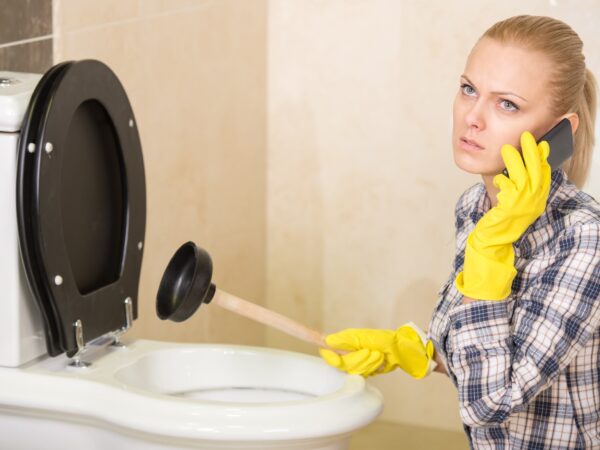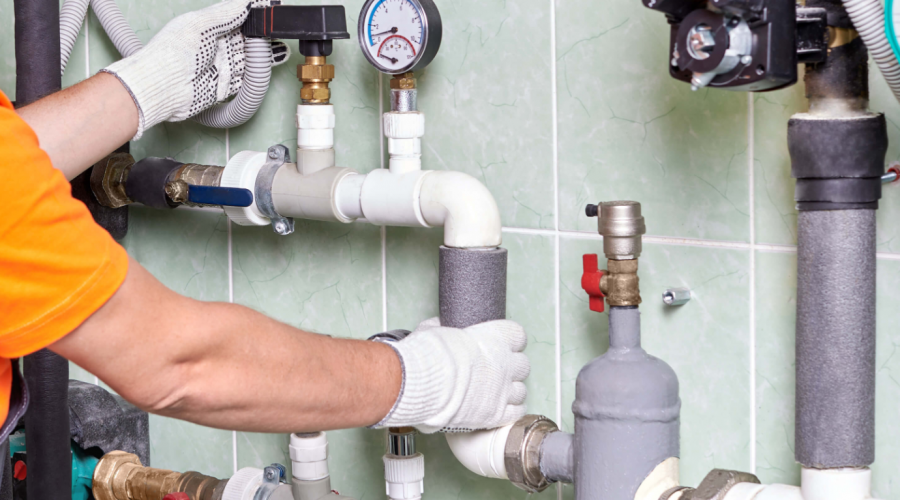Immediate Tips for Critical Situations: Steps to Follow Until Help Arrives
Immediate Tips for Critical Situations: Steps to Follow Until Help Arrives
Blog Article
Everybody has their personal perception in relation to What to Do While Waiting for an Emergency Plumber.

Plumbing emergency situations can strike at any moment, triggering anxiety and possible damages to your home. Whether it's a ruptured pipe, a clogged drain, or a leaky faucet, understanding how to handle the circumstance up until an expert plumbing shows up can save you from additional issues. This post supplies necessary emergency situation pipes pointers to aid you minimize damages and reclaim control throughout a pipes dilemma.
Turn Off the Water Supply
The first step in any kind of plumbing emergency is to shut off the supply of water. For localized problems, such as a dripping tap or commode, switch off the shutoff near the component. When it comes to a significant leak or burst pipe, locate your home's main water shut-off valve and turn it off instantly. Knowing the location of these valves beforehand can save valuable time throughout an emergency situation.
Address Tiny Leakages with Short-lived Solutions
Tiny leakages can swiftly come to be considerable issues if left untreated. Utilize these short-term fixes until professional aid gets here:
While these solutions aren't permanent, they can help minimize water loss and damage.
Unclog Drains Pipes Securely
A clogged up drainpipe can be a discouraging and messy concern. Right here's exactly how to tackle it:
If these methods do not work, prevent using too much pressure, as it may worsen the clog.
Manage Overflowing Toilets
An overruning bathroom can cause immediate disorder. Right here's what you should do:
Turn off Your Water Heater
In particular emergency situations, such as a burst pipeline, it's smart to turn off your water heater. This protects against getting too hot or damage to the system when water quits streaming. Turn off the power supply to the hot water heater (electrical or gas) and let it cool to prevent potential threats.
Briefly Quit a Ruptured Pipe
A ruptured pipe can bring about considerable water damage in mins. To mitigate the concern:
Call an expert plumber immediately to deal with the problem permanently.
Take Care Of Frozen Pipeline Very Carefully
In chillier environments, icy pipes are an usual emergency. If you suspect a frozen pipe:
Prevent More Damage
Taking fast activity to reduce damages can save you money and time in the long run. Right here's how:
. Have an Emergency Plumbing Set
Prepare a standard plumbing emergency package to handle minor problems properly. Your kit ought to consist of:
Having these devices on hand can make a considerable distinction in your ability to handle emergencies.
Know When to Call an Expert.
While quick fixes can aid momentarily, certain plumbing issues need instant expert focus. Call a plumber if:.
Quickly calling an expert makes sure the problem is solved properly and stops further problems.
Conclusion.
Plumbing emergencies can be frustrating, yet with the appropriate expertise and devices, you can handle the circumstance efficiently until help gets here. By switching off the water system, attending to little leaks, and using short-lived solutions, you can lessen damage and keep your home safe. Bear in mind, these suggestions are temporary solutions; constantly seek advice from a certified plumbing to handle the origin of the issue. Preparation and fast thinking are your best allies in any kind of plumbing emergency.
8 Helpful Tips for Managing Plumbing Emergencies at Home
If your plumbing system hasn’t failed once, wait for it because almost everyone has a story to tell. Sometimes, it could be simple emergencies such as a leaking pipe, a blocked cistern, or even a big burst pipe. In situations like this, you need to have some handy tips to save you some money and from possible damages.
Take care of minor issues early.
Sometimes, you could have avoided an emergency by taking proactive measures while it was still early. Some major plumbing emergencies can be a result of an ignored minor issue. We recommend that you have items like plumbing tapes and other related items. A plumbing tape can allow you to manage minor leaks before the plumber arrives.
Cut off the water supply.
This tip is essential in almost any type of leakage problem. For problems like minor leakages in the toilet or kitchen, turn off the supply that takes water to the affected pipes. If the leakage is a major pipe, you must shut off the supply valve to the entire building. This will help you avoid flooding your home and neighbors if you share a flat.
Know your plumbing system
Folks typically move into a new apartment without understanding the water supply around the building. This can prove disastrous if a water emergency arises and the plumber is far away. The previous tip will prove useless if you don’t practice this one. More importantly, know where your water shut-off valve is located – you’ll need that knowledge to prevent potential home floods.
Have some common handy tools
There are lots of plumbing emergencies that you can handle without hiring a plumber. That’s why you must keep some tools available always. Some tools that you can use to fix simple plumbing emergencies easily include plumbing tapes, screwdrivers, thread seal tapes, plungers, pliers, tape measures, and rubber gloves.
Insulate your pipes from cold
You’ll save yourself from many plumbing expenses if you protect your water pipes from the cold. This is because of the harmful effects that cold weather can have on your pipes. During winter, your pipes can burst from being overly expected to freezing temperatures. So, make sure insulators are there to keep the pipes working correctly.
Avoid practices that will clog your toilet.
Many people indulge in practices that can damage the plumbing system of the entire building. One of these is when they use their toilet to dispose-off garbage. They flush all kinds of things, such as paper towels, bandages, hairs, female sanitary products, etc., down the toilet. This will block your toilet in the long run, incurring unnecessary expenditures. Dump such waste in the trash instead.
Check your dials regularly.
Sometimes, there could be leakages in your home without noticing them in time. So, constantly monitor your water meter dial. If the dial is reading when there is nobody using water, this is an indicator that there is leaking. Check for leaks immediately. Call a plumber as soon as possible if you can’t find any.
https://www.constructionplacements.com/8-helpful-tips-for-managing-plumbing-emergencies-at-home/

Hopefully you enjoyed our section about What to Do While Waiting for an Emergency Plumber. Many thanks for taking time to read our blog. If you appreciated our article kindly consider to share it. Thank you for going through it.
Get Your Estimate Now Report this page